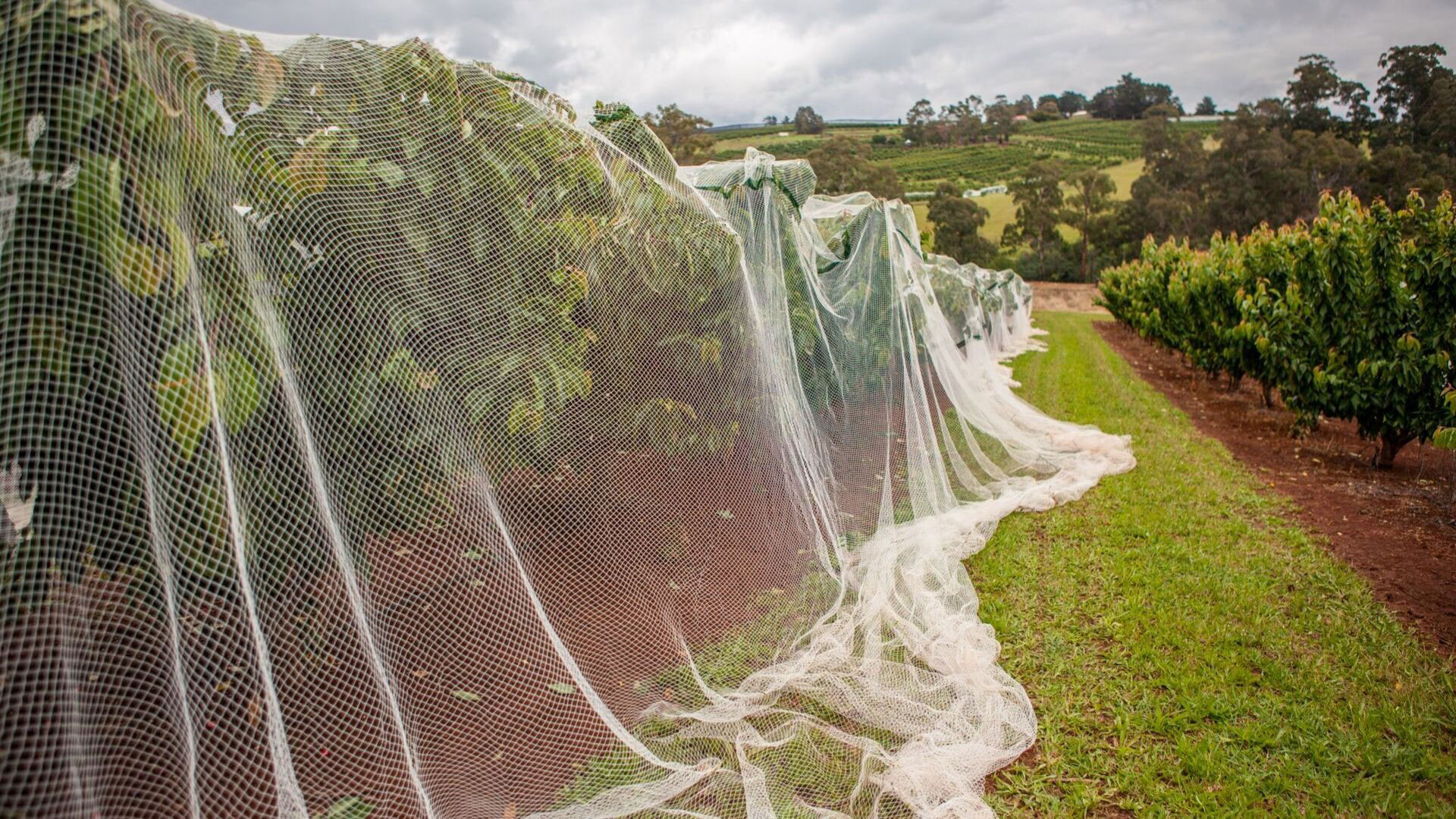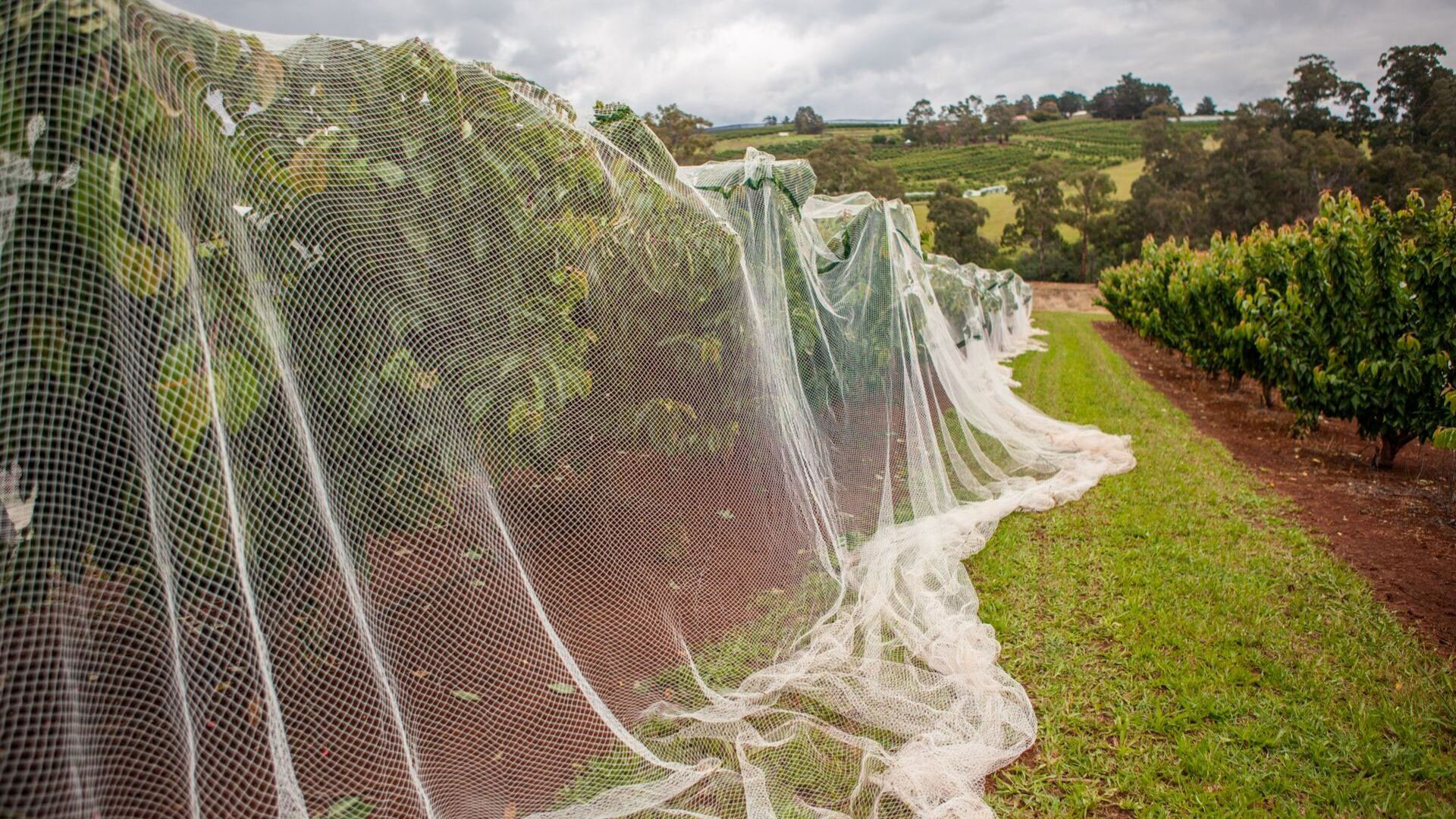Netting Your Fruit Trees
Netting your fruit trees
Without a doubt, quality bird netting can stop invasive birds and animals from feasting on your fruit trees and vegetable gardens. What's more, our knitted bird netting can also prevent these 'pests' from getting caught in the nets. After all, no hobby farmer wants to see native wildlife entangled or strangled among their crops.
Dine-A-Chook's heavy-duty bird netting is made from UV-resistant, knitted mesh with a small aperture, making it the perfect choice for long-lasting protection. Our netting is easy to install, durable, and can even shield your crops from hail and sunburn.
Best type of netting
When choosing bird netting, there are a few standout products that we recommend. These have the following qualities:
- Is made from a knitted mesh
- Has a small aperture. Ours is 16mm, large enough for pollinating insects
- Is UV resistant for a long lasting protection
We recommend the Dine-A-Chook White and Black heavy duty bird netting. With all the above qualities (and more) our heavy duty garden netting can even protect against hail and sunburn
Bird netting installation
The most effective way to protect your crop is to apply the netting on a frame, keeping the netting taut along the structure. This will do two things - keep the netting off your trees/garden and also prevent wildlife from getting caught in the netting.
A bird net frame needn't be elaborate, it can be a structure of timber, PVC pipe or even star pickets. It simply must be strong enough to hold the netting tightly, without collapsing.
When applying the netting over a structure remember to keep it taut. Use bricks on the ground to hold the netting in place and prevent animals from sneaking in under the netting. Another way to keep the netting in taut and in place on the frame is to use cable ties.

How to install bird netting in fruit trees
- Build a frame: Construct a simple frame around your fruit trees using timber, PVC pipes, or star pickets. The frame should be sturdy enough to support the netting and keep it taut. This will prevent the netting from sagging onto the trees and help avoid wildlife entanglement.
- Drape the netting: Drape the bird netting over the frame, ensuring it covers the entire structure. It's important to keep the netting taut to minimise gaps and prevent animals from sneaking underneath.
- Secure the netting: Use bricks, rocks, or stakes to secure the edges of the netting to the ground. This will help keep the netting in place and prevent animals from accessing your crops from underneath.
- Tighten with cable ties: For extra security, use cable ties to attach the netting to the frame at regular intervals. This will ensure the netting stays tight and in place, even in windy conditions.
- Regular inspection: Regularly inspect the netting for any tears or areas where it might have come loose. Repair any damages immediately to maintain the effectiveness of the netting.
What is the difference between white and black bird netting?
At Dine-A-Chook we sell both white and also black garden netting. There are benefits to both colours and the choice between the two may also come down to its purpose.
White garden netting stands out on trees and gardens. This higher visibility makes it easier for both humans and mammals to see, and avoid.
Black netting on the other hand will blend in with the surrounds without standing out. The netting is suitable for a wide range of applications, not just for fruit crop.





